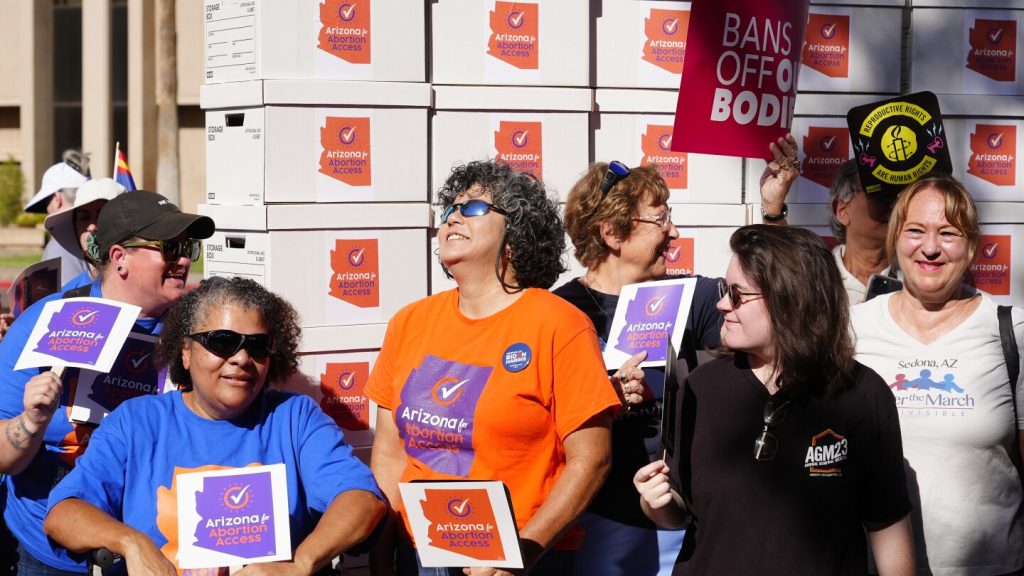The Arizona Supreme Court has ruled that an informational pamphlet for Arizona voters can refer to an embryo or fetus as an “unborn human being” in the upcoming fall election. This decision sided with Republican lawmakers who drafted the language, despite criticism from proponents of the ballot measure on abortion rights. Democrats have been focusing on abortion rights as a central message, especially after the U.S. Supreme Court overturned Roe v. Wade in 2022. Arizona is considered a battleground state in the upcoming elections, making the abortion ballot measure a key issue.
The ruling was met with swift criticism from the backers of the ballot measure, who argued that the phrase “unborn human being” is neither impartial nor objective. They expressed concerns that Arizonans would be exposed to biased and politically charged language in the voter pamphlet. The ballot measure would allow abortions until an embryo or fetus could survive outside the womb, typically around 24 weeks, with exceptions for later-term abortions to save the mother’s life or protect her physical or mental health. It would also restrict the state from adopting or enforcing any law that prohibits access to the procedure.
Arizona House Speaker Ben Toma, a Republican, defended the language in the voter pamphlet, stating that it was intended to help voters understand the current law. The majority-Republican legislative council responsible for drafting the disputed language was sued by Arizona for Abortion Access, but the Supreme Court overturned a previous ruling that found the language to be politically partisan. The brief ruling did not provide an explanation for the decision, and a full opinion is expected to be released later. The secretary of state’s office clarified that the phrase “unborn human being” would be included in the pamphlet, but not on the actual ballot.
As anti-abortion groups and Republican allies face setbacks at the ballot box, they have employed various strategies to prevent abortion rights from being included in ballot measures. This includes legal battles over the language of initiatives, such as in Missouri where a state appeals court ruled against the wording used by the Republican secretary of state. Similar efforts have been seen in Florida and Ohio, where attempts were made to keep proposed abortion rights amendments off the ballot. Other tactics used to thwart abortion ballot measure efforts include removing signatures from petitions, introducing competing ballot measures to confuse voters, and raising the thresholds for ballot initiatives.
Despite these challenges, the secretary of state’s office in Arizona has certified enough signatures to put the question of guaranteeing a constitutional right to an abortion before voters in the fall election. The battle over abortion rights continues to be a contentious issue across the country, with both sides using legal, political, and procedural maneuvers to advance their agendas. The outcome of the Arizona ballot measure could have far-reaching implications for the future of abortion rights in the state and beyond.


